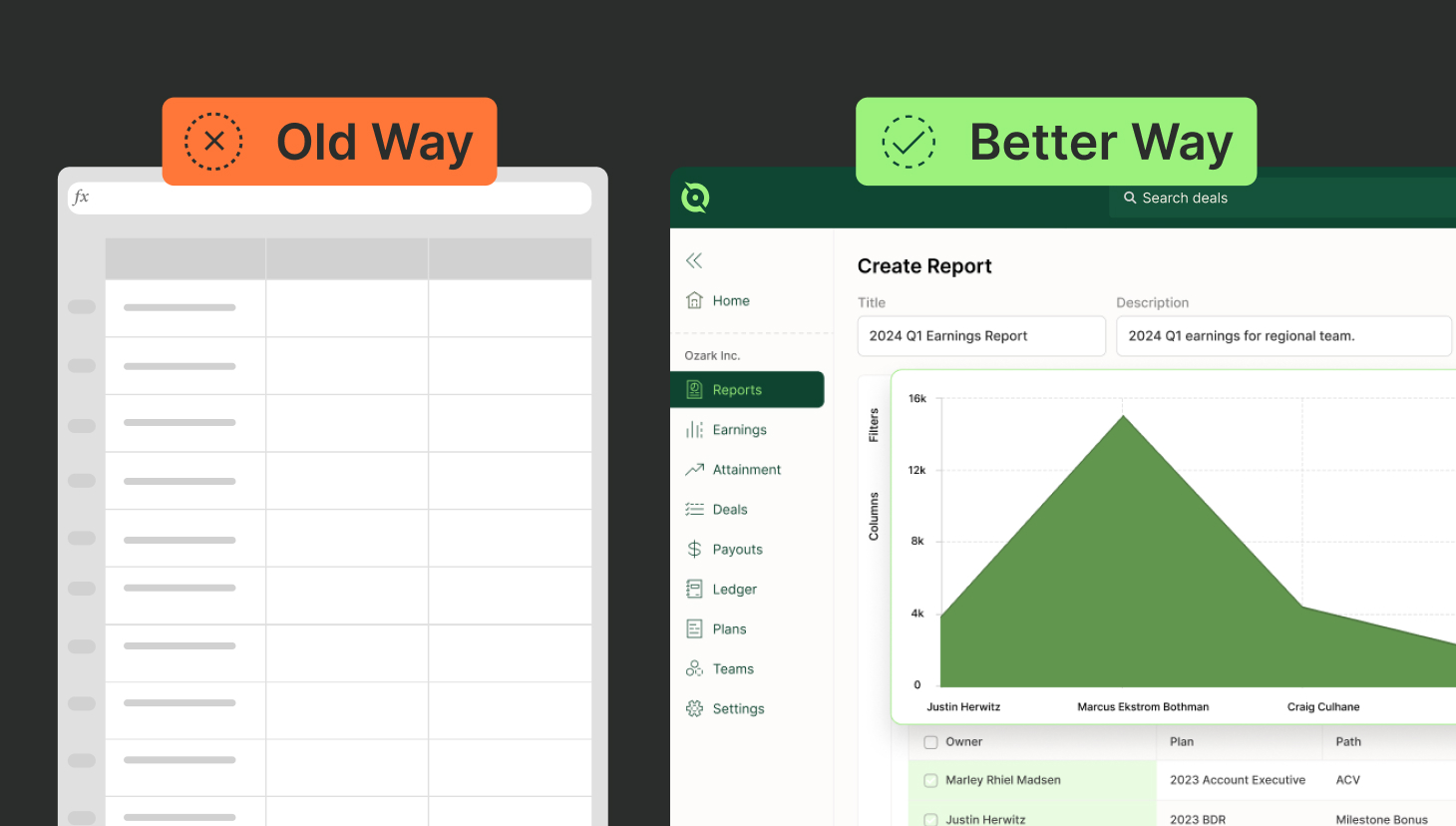If you’ve been following along on our blog, you know we’ve already covered two different types of variable compensation: single rate commission and multiple rate commission. Now we’re moving on to another type of compensation called bonuses. In the coming articles, we’ll cover single rate bonuses, multiple rate bonuses, and milestone bonuses, and the pros/cons of each.
RevOps, sales leaders, and finance teams use our free tool to ensure reps’ on-target earnings and quotas line up with industry standards. Customize plans with accelerators, bonuses, and more, by adjusting 9 variables.
Build a Comp PlanWhat you need to know about single rate bonuses
Though they are sometimes used interchangeably, bonuses differ from commissions. While a commission is a percentage of a currency, a bonus is a set amount of money earned for doing something specific. This can be anything from selling a certain product to setting a meeting to hitting your quota.
The most basic format of bonuses is the single rate bonus. These are sometimes called spiffs or incentives, a single rate bonus is a set amount of money (say $100) for doing a specific action (say selling Product A) that doesn’t change based on how many times you do that action.
Examples of single rate bonus plans
An Account Executive is expected to sell 30 security systems per quarter and is paid $500 for each system they sell.
A Sales Development Representative has a monthly goal of setting 25 meetings and earns a $100 bonus for every meeting that occurs.
A Sales Manager is responsible for coaching and promoting their reps, so they get a $2,000 bonus for every salesperson on their team that gets promoted.
Pros of single rate bonus plans
Easy to explain. Even if you have a crazy bonus amount (like $3.45 per cold call made) it’s very simple to explain that for every action, there is a specific outcome. This can be motivating if it’s something that they have a lot of control over (for example, setting meetings or selling a certain product).
Can be changed without much issue. Because salespeople generally do the things you pay them the most to do, it’s easy to change behavior by simply increasing or decreasing the bonus you pay them. If you realize you need to set more meetings this year, you can easily double the value paid for a meeting. You might not see twice as many meetings, but you’re certain to see an increase!
Cons of single rate bonus plans
It doesn’t account for discounting. If you give your sales team any leverage to discount your products and you pay a set amount for each item sold, your reps have no reason to not discount — hurting your average sales price.
Overly simplistic. Lots of organizations reward for overperformance, which is something that can motivate sales reps to sell more, SDRs to set more meetings, and customer success to focus on renewals. However, with single rate bonuses, you don’t have accelerators to help you with that.
QuotaPath handles 90% of comp plans, so whether your company has a single rate bonus plan or something a lot more complex, you’ve come to the right place! Beyond the known benefits
of sales commission software, QuotaPath is free and easy to try out for your team.



